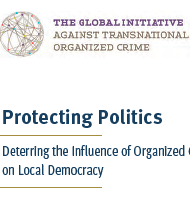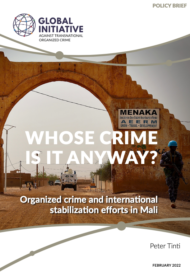Posted on 17 Oct 2016
Webinar hosted by International IDEA, to launch their “Protecting Politics” series. Featured speakers included:
- Tuesday Reitano, Deputy Director, Global Initiative against Transnational Organized Crime
- Graeme Smith, Political Affairs Officer, UN Mission in Afghanistan
- Helena Bjuramalm, Senior Programme Manager, International IDEA
Public service delivery is one of the main tasks citizens expect from their governments. Democracy is a political system that should improve service delivery as it ofers the building blocks for equitable resource distribution and sustainable development. Indeed, in the frameworks of the 2030 Agenda for Sustainable Development, the democratic principles of transparency and accountability play a key role in the achievement of the Sustainable Development Goals. However, in many contexts, public service delivery is fraught with corrupt practices, leading to less accountable and less efective public services that are not adequately reaching those they are intended to serve. Particularly in fragile and confict afected states, corrupt practices can sometimes be linked to organized crime.
These illicit groups and networks increasingly form parallel structures that compete with the state to provide services, either in open confict with the state, or sometimes working with the explicit or tacit agreement of the authorities. In other cases, however, organized crime does not become a service provider but instead hinders the state’s provision of services by leeching of state resources through corruption in public contracts. In all of these cases, organized crime perpetuates poverty and inequality, while threatening economic growth and, by extension, democracy itself. Furthermore, organized crime challenges the state’s legitimacy by profling itself as a viable provider of services to the population, while the state’s capacity to provide services is undermined.



